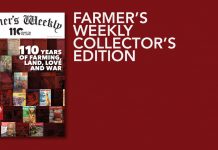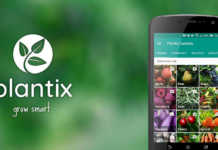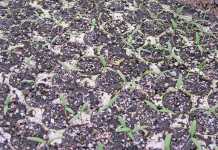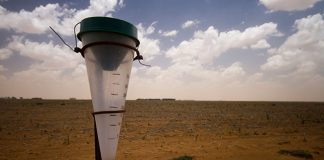The Roux family own the farm Ramah on the banks of the Orange River. The family has been farming there for 100 years. In 1996, Roux Pecans were certified organic. Bob Roux says that they used to use flood irrigation in the orchards. He remembers the big old engines on the river that pumped the water to the orchards and how workers with spades would open and close strategic points to make sure water was channelled into the desired part of the land.
This method was not the ideal way to irrigate, but it was all farmers had back then, as I’m sure many of our readers can attest to. “Today, we have self- starters and with my smartphone I can start a pump and set the pressure needed,” says Bob.
When that pressure is reached, he can use his cellphone to open certain taps to water the desired orchards. By means of an app, and probes inserted into the soil at strategic positions, he can also read how much groundwater there is in all the orchards.
A flexible Hardware system
Hydra Sensor Technologies International (HSTI) is the manufacturer of the probes and Hydrawize the supplier in South Africa. Of varying lengths, each probe is 38mm in diameter and uses smart sensors that monitor environmental data.
The probes form an ‘intelligent mesh network’ to communicate with the farmer by a GSM/SIM card or by wireless where there is no network. If one of the probes goes down, the system creates a new path to send the data to the router.
Software that operates on any computer
The software used by Rouxs is Probe Schedule. It is a web-based program that can be accessed from any computer with an Internet connection. The system also offers an app for smartphones (Android and IOS). This is useful for ‘just-in-time’ decision-making. Probe Schedule makes use of weather data and crop coefficients for greater accuracy and displays the plants’ water requirements for the week.
The software can also generate irrigation schedules and can be sent to an irrigation controller for a more accurate irrigation cycle.










